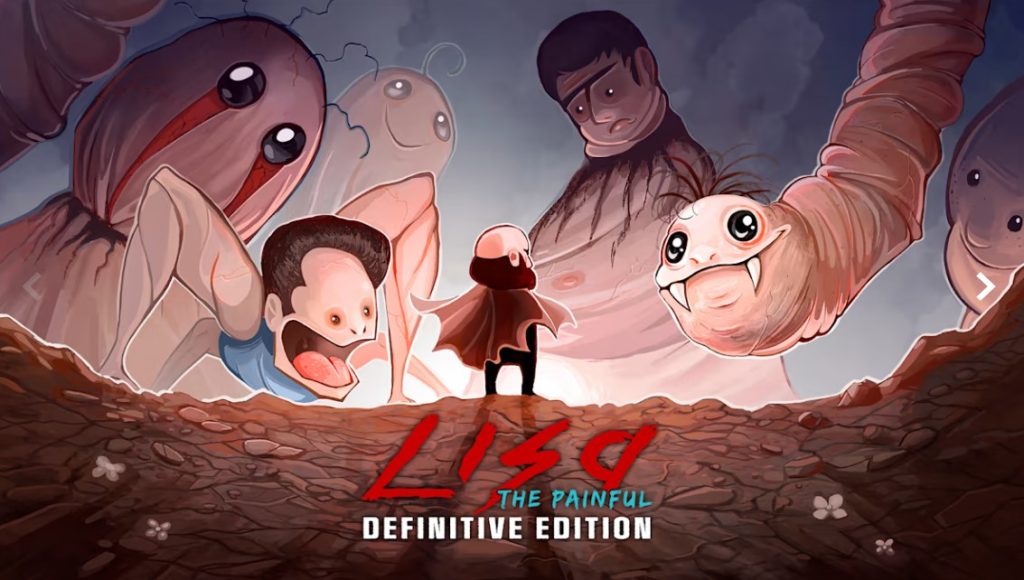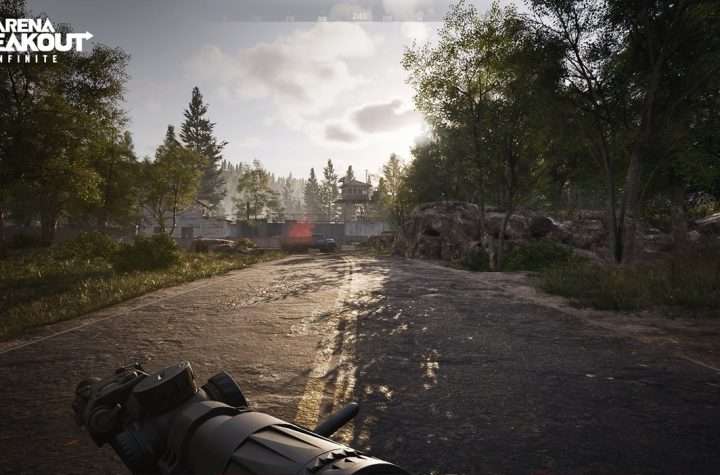I was not wholly unfamiliar with Dingaling Productions’ Lisa: the Painful going into this review. I had known that it was a very beloved and very difficult RPG set in the post-apocalypse that I was vaguely interested in (though at that time, I had yet to gain an appreciation for brutally difficult gaming experiences). Nowadays, I have gained an appreciation for gaming experiences that will grind you into the dirt and expect you to thank them for it (of which I usually do), so my vague interest in Lisa grew when I received the review code for the game. Going into it, I had a few expectations. I had known that people loved it, I had known that the game would be harsh, and I vaguely knew about the setting.
But nothing could have prepared me for how strange or how good this game truly was.
LISA: The Painful – Definitive Edition puts you in the shoes of Brad, a balding former martial arts instructor with a troubled past, as he journeys across the post-apocalyptic wasteland of Olathe in order to rescue Buddy, his adopted daughter and the last remaining woman on earth. Throughout the story, Brad will recruit party members and face off against other survivors also searching for Buddy, grotesque mutant creatures, and Brad’s own addiction to the mysterious drug Joy. Through exploring the world of Olathe, the player will uncover the multiple layers of Lisa’s story. There are multiple times in the story where Brad will hallucinate an event from his past and his previous relationship with his family, which provides further depth to his single-minded obsession in finding Buddy and the messed up things he’ll do in his quest.

Brad’s increasing brutality is further emphasized through the game’s choices. Unlike many, many other games that offer choice systems where the choices don’t have any real effect on narrative or gameplay, Lisa will continuously offer you a series of choices that directly impact both Brad and his party. Multiple times throughout the game, Brad will be surrounded by other survivors of Olathe and be forced to choose between two equally devastating choices. While this can be can be a choice between giving up all your items or money and a nearly impossible combat encounter, the most interesting choices will involve Brad needing to sacrifice either the life of a party member (which will permanently kill the chosen member) or one of his arms (which will permanently decrease his stats, restrict the kinds of moves he is able to use in battle, and increase his need for the Joy drug). The first time I was met with this ultimatum, I chose to give up Brad’s arm and quickly felt the consequences as combat encounters immediately became more difficult. These difficult choices even extend to resting your party. Throughout the game, the player will come across campfires that can heal their party with the drawback that the game will give you a randomized detrimental effect, forcing you to consider whether or not healing your party would be worth getting the entire party poisoned or one of your allies kidnapped. Lisa’s choices and devastating consequences serve to further put the player into the headspace of Brad. Olathe is an incredibly brutal world, and an undercurrent of the game is how the brutality of the world can force its inhabitants to make tough choices in the name of survival. Do you sacrifice a party member that might have proved incredibly useful in the past in order to keep Brad, the strongest party member, at top form, or do you weaken Brad in order to keep that party member alive? Do you give up your money and items even though they will serve you well in the future, or do you risk a potentially brutal fight? It constantly forces the player into the mindset of a post-apocalyptic survivor.
This brutality is emphasized through the combat. Enemies hit like a freight train on a semi truck, and there aren’t many randomized encounters in the game to grind with. Therefore, the player is forced to think strategically in each combat encounter to effectively utilize their party members’ skills to gain a narrow victory. Of course, that isn’t enough to get through some of the game’s toughest fights. The player will inevitably be forced to explore the world of Olathe to find items and potential party members. Olathe has many secrets to uncover, from healing items to thrown weapons or even empty bottles which can be turned into either (fire bombs are a very, very useful item). There will also be different stashes of magazines (the game’s form of currency) and different vendors to buy weapons and armor to improve your party. It makes Brad and his allies feel like scavengers who use scrappy intuition to win fights. The key to victory in Lisa isn’t strength. It’s intelligence.
I’ve talked a lot about Lisa’s brutality and difficulty, and that’s because it truly is an important part of the game. However, I don’t mean to give the impression that the game is a constantly-oppressive misery-fest. It isn’t. The truth is that Lisa is a much stranger game than you might think. It has an offbeat sense of humor. Early in the game, for example, the player can meet Nern, a self-proclaimed historian, that will proceed to tell you long-winded and hopelessly boring stories about his personal life that meander with no real point. After exiting his area, he appears to the player again to tell another long-winded story before joining the party. I laughed out loud when he appeared again. This strange tone isn’t a one-off incident either, as the game is littered with many moments of absurd comedic relief (a favorite of mine being an early game boss that’s a group of three men that share one giant head of hair that they use to attack you). The discrepancy between absurdist humor and the brutal world serves to establish a unique identity while also giving the world a small sense of light through the constant darkness.
Lisa: The Painful is excellent. The game’s brutality manages to strike a balance between punishing and fair, and the game’s narrative is truly gripping. It’s no wonder why the game has gained a cult following, and now many more people will be able to experience it on the Switch. I easily give it a 9/10.
For more information, visit the Nintendo eShop.
Related: Reviews by Josh Freeman
I love games and love talking about games. Some of my favorites include action games (both 2D and 3D), metroidvanias, roguelikes, shooters, and Indies.





More Stories
My Little Pony: A Zephyr Heights Mystery Releases for PC and Consoles
Arena Breakout: Infinite Closed Beta Impressions
Indika Review for PlayStation 5